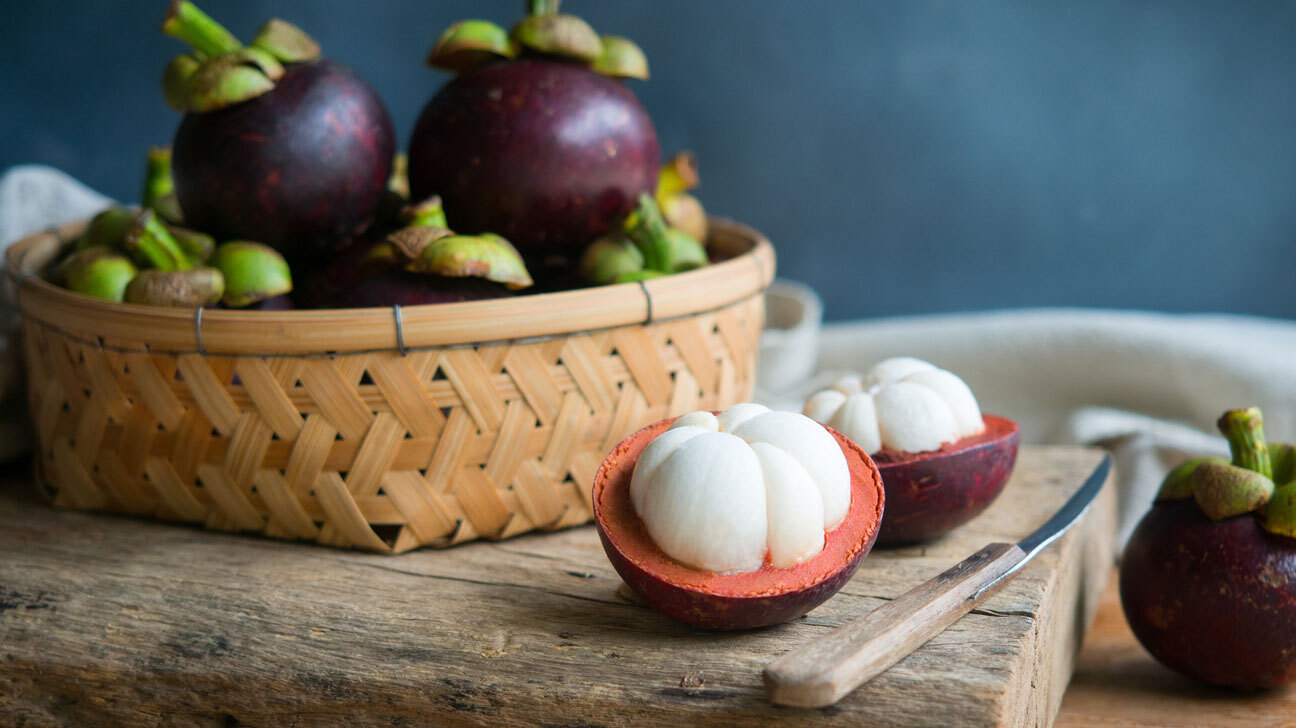
Mangosteen, often called the "queen of fruits," is a tropical delight packed with flavor and nutrients. Ever wondered why this fruit is so special? Mangosteen isn't just delicious; it's a powerhouse of health benefits. Native to Southeast Asia, this fruit has a thick purple rind and juicy, sweet-sour segments inside. Its unique taste and texture make it a favorite among fruit lovers. But there's more to mangosteen than meets the eye. From boosting the immune system to promoting healthy skin, this fruit has been used in traditional medicine for centuries. Ready to learn some amazing facts about mangosteen? Let's dive in!
Key Takeaways:
- Mangosteen, the "queen of fruits," is rich in antioxidants, vitamins, and fiber, making it a delicious and healthy snack with potential anti-inflammatory and medicinal properties.
- With its sweet and tangy flavor, mangosteen can be enjoyed fresh, in desserts, or as tea, while modern research explores its potential to lower blood sugar, fight cancer, and improve heart health.
What is Mangosteen?
Mangosteen, often called the "queen of fruits," is a tropical fruit known for its sweet and tangy flavor. Originating from Southeast Asia, this fruit has a rich history and numerous health benefits.
-
Mangosteen is native to the Sunda Islands and the Moluccas of Indonesia.
-
The fruit has a thick, purple rind that protects the juicy, white segments inside.
-
Mangosteen trees can take up to 10 years to bear fruit.
-
The fruit is rich in antioxidants, particularly xanthones, which help combat free radicals.
Nutritional Benefits of Mangosteen
Mangosteen isn't just delicious; it's packed with nutrients that can benefit your health in various ways.
-
Mangosteen is low in calories, making it a great snack for those watching their weight.
-
It contains essential vitamins like vitamin C, which boosts the immune system.
-
The fruit is also a good source of fiber, aiding in digestion.
-
Mangosteen has anti-inflammatory properties, which can help reduce the risk of chronic diseases.
Historical Significance of Mangosteen
Mangosteen has been cherished for centuries, not just for its taste but also for its medicinal properties.
-
Queen Victoria of England reportedly offered a reward to anyone who could bring her fresh mangosteen.
-
Traditional Chinese medicine has used mangosteen for centuries to treat various ailments.
-
In Ayurvedic medicine, mangosteen is used to balance the body's doshas.
-
The fruit was introduced to the Western world in the 19th century by European explorers.
How to Eat Mangosteen
Eating mangosteen can be a delightful experience if you know how to handle it properly.
-
To open a mangosteen, gently press the rind until it cracks open.
-
The white segments inside are the edible part; avoid the seeds as they are bitter.
-
Mangosteen can be eaten fresh or used in desserts, salads, and smoothies.
-
The rind can be dried and used to make tea, which is believed to have health benefits.
Mangosteen in Modern Medicine
Modern science has started to uncover the potential health benefits of mangosteen, validating many traditional uses.
-
Studies suggest that mangosteen extract can help lower blood sugar levels.
-
The fruit's anti-cancer properties are being researched, particularly its ability to inhibit tumor growth.
-
Mangosteen may improve heart health by reducing cholesterol levels.
-
The fruit's antibacterial properties can help fight infections.
Fun Facts About Mangosteen
Mangosteen has some quirky and interesting facts that make it even more fascinating.
-
Mangosteen is often called the "queen of fruits" because of its exquisite taste and health benefits.
-
The fruit is banned in some countries due to the risk of importing Asian fruit flies.
-
Mangosteen trees can grow up to 25 meters tall.
-
The fruit is often used in cosmetics for its skin-rejuvenating properties.
-
Mangosteen is celebrated in festivals across Southeast Asia, highlighting its cultural importance.
The Final Bite on Mangosteen
Mangosteen isn't just a tasty treat; it's packed with nutrients and antioxidants that can boost your health. From its origins in Southeast Asia to its nickname "Queen of Fruits," this exotic fruit has a rich history. Its anti-inflammatory properties and potential to fight cancer make it more than just a snack. Whether you enjoy it fresh or in juice form, mangosteen offers a unique flavor and numerous health benefits. So, next time you see this purple gem, give it a try. You might find a new favorite fruit that not only tastes good but also does good for your body. Remember, adding a variety of fruits to your diet can make a big difference in your overall health. Mangosteen is a delicious way to start.
Frequently Asked Questions
Was this page helpful?
Our commitment to delivering trustworthy and engaging content is at the heart of what we do. Each fact on our site is contributed by real users like you, bringing a wealth of diverse insights and information. To ensure the highest standards of accuracy and reliability, our dedicated editors meticulously review each submission. This process guarantees that the facts we share are not only fascinating but also credible. Trust in our commitment to quality and authenticity as you explore and learn with us.


